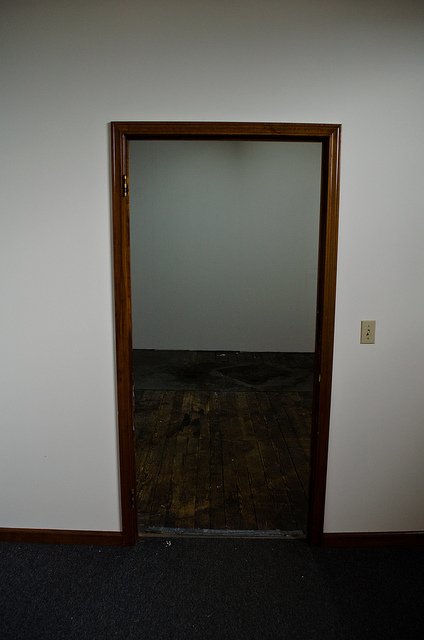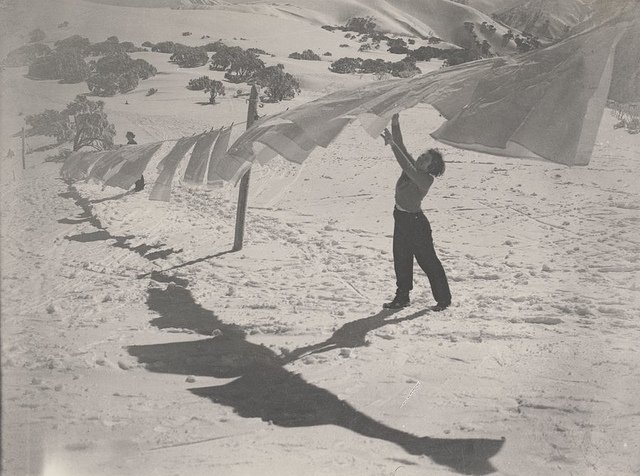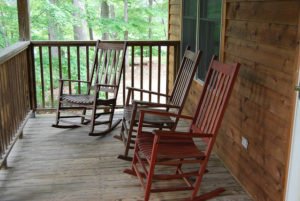
Just another one of those, he’d say to himself when it all got really annoying and he was trying to talk himself down a little. And we know just how to take care of things like that. He’d say this to himself, even when there would be no we involved. What he meant by those things included various kinds of car trouble (the catalytic converter, twice now) and conversations with the lawyer of his soon-to-be-ex-wife. They included—like now—glitches in the master schedule of the small college where he was registrar. The pair of phrases would turn into a grumbled chant—just-another-one-of-those-and-we-know-just-how-to-take-care-of-things-like-that—emphasis on the just—that Dan used for the repeated dysfunctions in his life. Occasionally, when a situation ratcheted up, he got a chanted curse chain going, one in which he turned a string of selected-in-the-moment profanities into gerunds and then attached the whole lot of them—rounded off with the term bastardly—to the offending circumstance.
The part of the new program that placed room numbers in the master schedule of classes had gone renegade and assigned every summer session class to the same classroom. The astronomer teaching the summer course called The Night Sky for Non-Physics Majors had taken it with humor—sending an email that read Will probably need a dolly of some kind to get the planetarium’s telescope across campus every night—as had the philosopher offering a section of an intro course—Kant be done, he’d said in his note. Everyone else had taken it personally, given the tone of the emails. Tech would spend the weekend on getting the new program to run the room numbers for the fall line-up of courses and he had already manually amended the summer school classes so that registration could open Monday.
And-we-know-just-how-to-take-care-of-that was what he was saying Friday afternoon as he made his way back to his apartment to finish packing and head an hour further upstate for the weekend to finalize the sale of his mother’s home. And trying to find a reason he could live with to dodge a visit his mother had repeatedly asked him to make when he was there.
Come with me when I visit Meggie, she would say. She would love to see you.
I don’t really know her, he’d say. She wouldn’t even remember me.
She may not be smart in ordinary ways, his mother said, but her memory is fine, just fine.
He had driven his mother to the group home to see Meggie once, just to drop her off and then circle back for her later. You should come in with me, she said. She remembers you. His mother had been Meggie’s afternoon babysitter—before she was too big, her family said, to simply keep at home, before she lived at the group home. When Meggie first moved there, his mother had gone over every afternoon—she just needs a little reassurance she can do this new thing, she would tell Dan on the phone. The afternoon of the visit he had driven her to, Meggie had flown off her porch chair and flung her arms around his mother’s neck as she reached the porch steps.
That’s what he would do now, he thought if he could—fling his arms around his mother’s neck. He was astonished at how much he missed her since she died. He felt her absence in a real day-to-day way, even though they hadn’t spent their days together since he was in high school. They hadn’t even been in the same town for years—and they certainly hadn’t been huggers. But he visited often enough—and they talked every week. He hadn’t thought of her voice as reassuring until he didn’t hear it. Here he was, he thought too old to need anyone’s reassurance—and he felt he could do with a call home. She had been dead two years. He had been virtually if not officially divorced for nearly one—they were on the final countdown.
When his mother got truly sick, she would say, Go spend some time with Meggie for me. I don’t want her to see me so thin. He hadn’t. Have you gone to see her yet, she’d ask when he visited. It will cheer her up, she’d say, I know it will. And you’ll feel better if you do. Dan hadn’t had the heart for it, not when his mother was sick. He and Lindsey were still married back then—but it was all coming apart.

And then his mother died.
Each time he visited town since, he contemplated going over to the group home, but without much real intention. As for this trip, there was too much to do, he told himself as he drove the hour north. Kant be done.
He and the real estate agent did a final walk-through of the house. The old installation jack for his mother’s landline was still embedded in the kitchen wall and he could picture his mother leaning against the wall, cradling the receiver between shoulder and ear, talking.
From the car, Dan phoned the group home, half-hoping his impulse to visit would be greeted with Sorry, but you should have called earlier. No such luck.
Meggie saw him from the porch as he came up the walk and threw her arms out in invitation for a hug as soon as who he was registered. It had taken only a flash. “Well, look at you!” she said stepping back. She was still a young woman, but the voice sounded older somehow. “Just look at you.”
She was twenty-eight maybe. Her hair, honey colored, was cut in the same bob he remembered from long ago, bouncing when she talked because she ducked her head often for emphasis. She wore a t-shirt and jeans and looked like a college student.
There were three spilling purple-mauve-hot-pink fuschias suspended from the porch eaves. “It’s my job to water them,” she told him as they crossed the porch, her arm linked through his. The air was filled with the deep droning of the bees cruising the flowers. He must have stiffened because she said, “Don’t worry, they won’t bother you if you don’t bother them.”
When he was a kid, he’d seemed to be stung by yellow-and-black insects more than his share of times. Look at that, his mother would say of the reddening sting on his arm or, once, behind his ear, another one of those. Don’t worry, we know just how to fix that. Baking soda, the answer was always the white mud of baking soda drying on the hot pink site of the affront to his day. These were just bees burrowing into each blossom, he reminded himself, not wasps or hornets—which had struck, as he recalled, in silence. Meggie was right. Not to worry.
“Sit,” she said, patting the arm of the chair next to her. “Let me look at you. Let me look at your face.”
Let me look at you. This girl who hadn’t seen him in the best part of a decade was saying let me look at your face. In his mind, he heard his mother’s voice saying Let me look at your face.
He was caught off-guard. How long had it been, he thought, since someone had just wanted to see his face? Over a year. Longer than that. He’d gotten used to it. This was the first time he had contemplated that maybe there actually would be someone who wanted it to be his face at the door again. Didn’t the time after a divorce have to be a pissing, bitching bastardly hell of a lonely thing for anybody? Maybe this last stretch of time had just been like physics—dropped things break. Lonely things, too. Maybe they mend.
A dog barked, from a distance, then a little closer. Gruff barks, deep barks. Meggie started to rock back and forth in her chair. “Just another one of those,” she said fast, low, to herself. He recognized this mantra. “We know how to take care of that,” she was saying. “It’s just another one of those sounds.” More barking. She rocked faster. Dan remembered a story about her being bitten as a child, the small white scar on her chin still visible, the chin a little less than symmetrical.
A face, concerned, appeared at the door and looked toward her—and Dan waved the caregiver off. He remembered what his mother would say and said it aloud. “It’s okay, I’m here—and the dog is far away. You’re right, it’s just another one of those sounds. And we know just how to take care of that.” He moved his chair closer to Meggie’s—and listened to the drone of the bees, joined the brief remix of his mother’s old chant.


Share this post with your friends.

